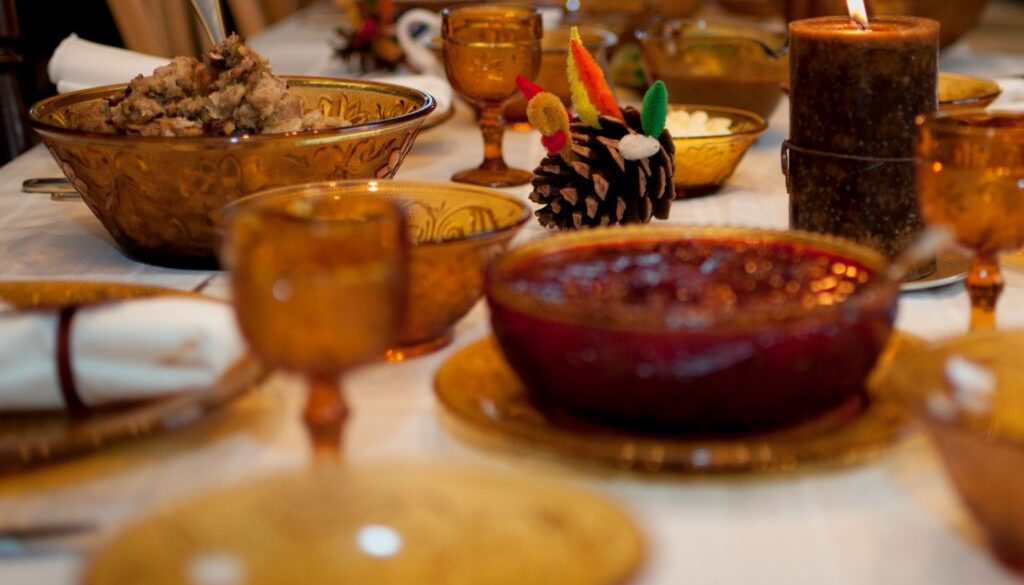The American Sabbath
This will be my third Thanksgiving and I am very excited. Last year, I made my first Thanksgiving dinner and roasted my first turkey: a new encounter with a bird that big! (Which reminds me: Trader Joe’s still has kosher turkeys so you can stock up on them and support our local kosher facilities if you are the turkey-eating type).
I must say I am rather partial to the Thanksgiving dinner, which in some ways reminds me of a traditional British or European Christmas dinner. Cranberry sauce, turkey (in the Netherlands, more commonly, game or venison) and copious pies. It is a festive late Fall or early Winter menu: hearty, warming and comforting, and a perfect way to transition to the shorter and darker days that lie ahead.
Still, it is not just the food that I appreciate about Thanksgiving, delicious though it is. It is what Thanksgiving means to America and its shared civic culture. (Which is not to say that people cannot have reservations about the history and mythology of the festival).
I remember when I sat down to my first Thanksgiving celebration, the atmosphere reminded me of Shabbat. Little did it surprise me to learn that indeed, Thanksgiving is sometimes called ‘The American Sabbath’, by among others, Jane Eisner, an editor of the Daily Forward, who wrote:
“Unlike the Sabbath, unlike Christmas and Rosh Hashanah and Ramadan, this is the one holiday welcome to all Americans, its rituals pliable enough to be adopted by any tradition. Of course, hospitals and newsrooms and gas stations and even the stray coffee shop stay open, as a service to the public, but the overall quiet of the day creates a national calmness, like Jerusalem on Shabbat or New England after a mighty snowfall.”
It’s not just the tryptophan in the turkey; there is an unmistakable mellowness to a Thanksgiving dinner that feels Shabbosdik: where people take the time to relax, talk, eat and savor the company of loved ones. Not only that, it is one of the few American holidays where this country – of incessant consumption and entrepreneurism – shuts down, in the best possible way. It is a much-needed break and breather from the pressures of modern living. However, it is not only food and rest that mark Thanksgiving as sympathetic to Jewish sensibilities, but the practice of gratitude.
Gratitude is a foundational element of Judaism: so much so that we own our own moniker to it. Jews – Yehudim – originates from Yehudah, (one of the sons of Leah), whose Hebrew name can be translated as ‘the grateful one’, sharing the root of the verb ‘lehodot’, ‘to thank’. Giving thanks is inextricably woven into our liturgy and ritual. From psalms to the morning blessings to grace after meals, our relationship with the Divine is predicated on the practice of giving thanks, one encouraged by contemporary psychologists. Not only is our liturgy in tune with gratitude, so are our holidays. At every Kiddush, we gave thanks ‘lezecher yitzi’at mitzrayim’, ‘in remembrance of the Exodus from Egypt’. At every festival, we sing Hallel, the psalms specializing in the business of praise. Yet, the most prominent moment of giving thanks in our tradition occurs during Sukkot, our ‘z’man simchateinu’, the ‘Season of our Joy’. When we gather in the harvest – literal or metaphorical – we are encouraged and expected to give thanks for the abundance in our lives.
Sukkot is intimately connected to Thanksgiving, which could be seen as a Puritan reimagining of Sukkot through celebrating the cornucopia of the harvest. In turn, Thanksgiving provides us with the perfect fulcrum between Sukkot and Chanukkah, Fall and Winter, Equinox and Solstice, themes of gathering and dedication, since Chanukkah was essentially a deferred Sukkot.
Chanukkah not only commemorated the rededication of the Temple after its defilement by the Hellenist troops of Antiochus Epiphanes, but in reality sought to reclaim Sukkot when it was not able to be celebrated at its designated time. Thanksgiving invites us to balance abundance with dedication – it is the process of giving thanks that allows us to connect both, to understand that our blessings require consequences, our good fortune calls for right action, and that the encroaching darkness begs for us to shine our light. This attitude of gratitude is what separates Sodom from Eden; abundance from corruption, greed from generosity, Lot from Abraham. Gratitude is a morally self-cleaning mechanism that allows our soul to rest, and our body to share. It is through gratitude that we are reminded of what is greater than us and how we can be bigger people. The American Sabbath invites us to think of all those things – to take the lessons from the High Holidays and let them marinate, so that we can check in with ourselves for Chanukkah.
Before we sit down at our turkey dinners – whether actual turkey or vegan – think of the ways you can give thanks. Perhaps this is the moment to cast your mind back to the month of Tishrey and forward to the month of Kislev, which follows on the Sabbath after Thanksgiving. Maybe you can write some notes to yourself with eight affirmations of thanksgiving and revisit them when you light candles for Chanukkah next month and reflect on how you can extend the source of your gratitude into blessing others with that same abundance.
(Eight suggested affirmations of gratitude could center around self, family, friends, work/study, personal pursuits, body and health, community and the world). What things are we grateful for and how can we advance them, not only for ourselves, but for others? What are the values of light we wish to carry into Chanukkah? How do we want to project our Jewish presence in a world that craves kindness, dignity, compassion and wisdom? And how can we build those bridges of beautiful civic culture when it seems so lacking these days? All of these could make worthy topics for our Thanksgiving tables next week.
Chag Hodu Sameach, a happy and blessed American Sabbath to us all.
(Credit goes to Agudas Achim member Mitch Levin for pointing out the connection between Sukkot, Thanksgiving and Chanukkah and suggesting it as a sermon topic. I always welcome your input and suggestions for sermons and teaching!)




